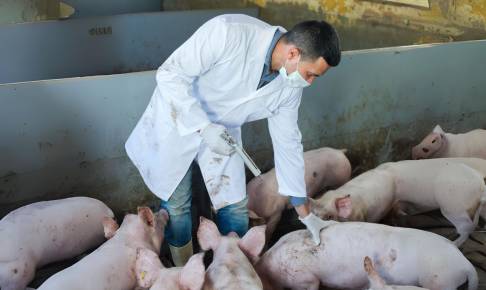Antimicrobial resistance crisis: OECD report urges global unity to fight it
The Organization for Economic Co-operation and Development (OECD) has just published a report about embracing a One Health approach to fight antimicrobial resistance (AMR).
AMR, the phenomenon of microbes developing resistance against antimicrobials, poses a grave and escalating global health risk. According to OECD report, without strategic interventions, costs associated with AMR could surpass those of the COVID-19 pandemic in the coming years.
The report, a product of advanced microsimulation and machine-learning techniques, underscores the necessity of a unified, cross-disciplinary One Health approach. This approach encourages cooperation across human health, animal health, agrifood systems, and the environment to effectively address the health and economic impacts of AMR.
The document highlights 11 One Health "best buys" or strategies that, if systematically applied, could improve population health, reduce health expenditure, and stimulate economic growth. However, the report also warns that without strengthened One Health action, AMR levels could remain dangerously high for at least a quarter of a century, leading to thousands of avoidable deaths annually and further straining healthcare resources.
The investigation shows that antimicrobials consumption remains alarmingly high in both humans and animals, with the average sales of all classes of antibiotics increasing nearly 2% since 2000. This trend raises the risk of untreatable infections and reinforces the proliferation of superbugs, with one in every five infections now caused by these antibiotic-resistant organisms.
The report paints a particularly grim picture for certain countries like Greece, India, and Turkey, where more than 40% of all infections caused by the 12 antibiotic-superbug combinations studied are projected to be resistant to antibiotics by 2035.
The human cost of AMR is staggering, with around 79 000 people across 34 OECD and EU/EEA countries losing their lives to resistant infections each year. This figure is 2.4 times the number of deaths due to tuberculosis, influenza, and HIV/AIDS combined in 2020. The elderly and infants are particularly vulnerable.
From an economic perspective, the cost of treating complications due to resistant infections could exceed USD 28.9 billion annually. The impact of AMR on workforce participation and productivity is estimated to be equivalent to USD 36.9 billion.
The report identifies several policy priorities for action, including bolstering nationwide implementation of programs for infection prevention and control, investing in robust surveillance systems, ensuring regulatory compliance, and increasing investments in research and development for new antibiotics, vaccines, and diagnostics.
The study suggests that implementing the 11 policy interventions suggested by the OECD could yield significant health and economic benefits. In particular, strengthening antimicrobial stewardship programs, improving hygiene practices in healthcare settings, enhancing food safety practices, and increasing biosecurity in farms were identified as the most promising strategies.
The report concludes that investing in a mixed policy package across the health and food sectors, for every USD 1 spent, could generate returns equivalent to USD 5 in economic benefits through reductions in health expenditure and increased productivity at work.
The report serves as a stark reminder that complacency in the face of this global health threat is not an option, and that a One Health approach is indispensable in the fight against AMR.
Source:






















